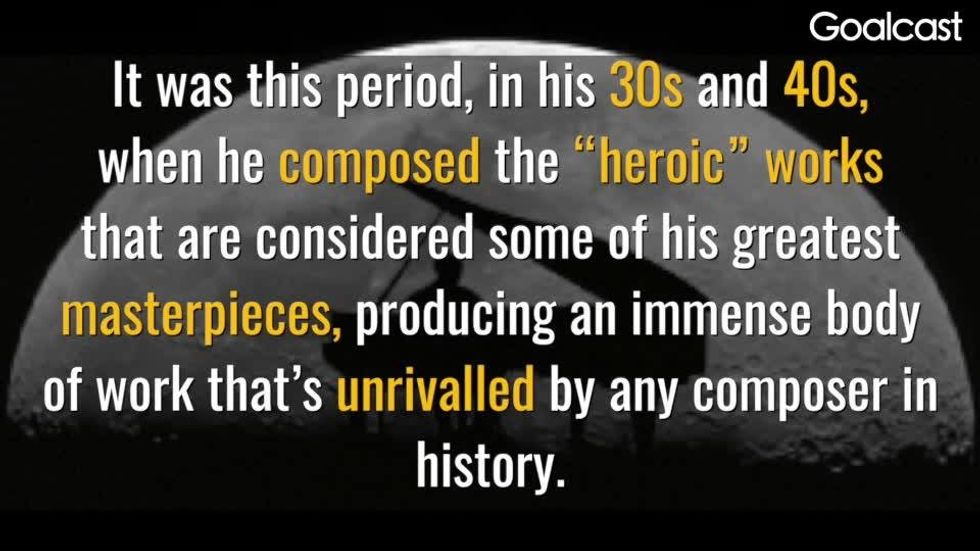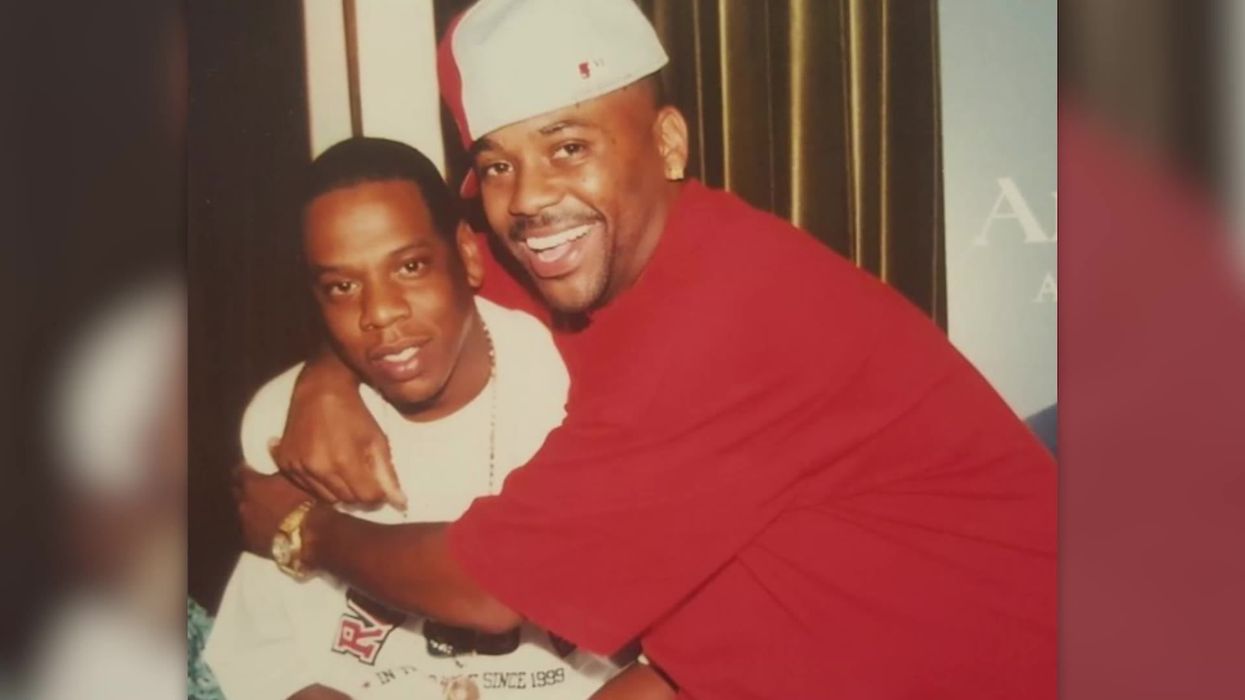
4415
Success StoriesLudwig van Beethoven: Unable to Hear His Own Harmonies
When a deaf musician writes the Fifth Symphony, Ludwig van Beethoven
By his early 30s, Beethoven was creating piece after piece that carried the signature of a great master, and had begun to establish himself as the successor to Mozart.
Transcript:
- Beethoven was brutalized by his father almost daily as a child -- flogged, locked in a cellar, and deprived of sleep, all in the name of hammering genius out of the boy, and in a hurry.
- His father was a violent alcoholic, and a failed musician himself who was determined to make his son the next Mozart.
- The family’s neighbors often saw young Ludwig weeping while he played the clavier, the child standing on a footstool to reach the keys as his father hovered behind him, beating his son for every mistake or hesitation.https://www.biography.com/video/beethoven-a-rough-childhood-2079170617
- In school, Beethoven was an average student who struggled with math and spelling his whole life, and is even thought by some biographers to have suffered from a mild dyslexia.
- When it came to music, Beethoven showed flashes of his imaginative talents from his earliest days. He gave his first public piano performance at age 7 and published his first composition at 13.
- Yet despite the draconian training and pressures, Beethoven never became the child prodigy his father dreamed of.
- His father’s alcoholism worsened as his voice decayed, and his total inability to support the family forced the young Beethoven into the role of breadwinner, using his musical abilities to help support his two younger brothers and mother.
- Though still in his teens, Beethoven got a job working as a court musician in Bonn, and steadily built up a reputation as one of the city’s most promising musical upstarts.
- At 22, Beethoven moved to Vienna, then Europe’s capital of music and culture, to devote himself fully to his musical passions.
- Once there, he studied closely with some of the greatest composers of the day, and after a decade of ardent dedication, Beethoven finally came into his own.
- By his early 30s, Beethoven was creating piece after piece that carried the signature of a great master, and had begun to establish himself as the successor to Mozart, who had died just before he arrived in the city ten years earlier.
- Yet just as his fame across Europe was reaching a new pinnacle, Beethoven was struggling with a dramatic setback, one which was so potentially lethal to his life’s passion that he desperately sought to conceal it: Beethoven, one of Europe’s greatest composers, was going deaf.
- At age 31, Beethoven was already at pains to decipher the words spoken to him in a conversation. With the curtain of silence falling fast, Beethoven’s creative output went into overdrive, as he raced against the clock to fulfill his life’s calling.
- It was this period, in his 30s and 40s, when he composed the “heroic” works that are considered some of his greatest masterpieces, producing an immense body of work that’s unrivaled by any composer in history: an opera, six symphonies, four solo concerti, five string quartets, six string sonatas, seven piano sonatas, five sets of piano variations, four overtures, four trios, two sextets and 72 songs.
- Beethoven’s genius peak under pressure, and he lived this period in profound misery and isolation, too ashamed to disclose his condition to others. The “infirmity,” as he called it, was not to be the last of his struggles.
- At age 45, Beethoven’s personal life unravelled, taking its toll on his musical output. The death of his brother sparked an ugly court battle with his sister-in-law over the custody of his nephew, which he only won at great personal cost.
- Beethoven never married or had children, and by age 50, he had gone completely deaf. Yet despite, or perhaps because of his great melancholy, loneliness, and many physical ailments, it was at this point in his life that Beethoven’s work entered its final and most climactic phase.
- Now in his 50s, the next five years of Beethoven’s life produced his most towering achievements, among which was the Ninth Symphony, which is considered by many to be the greatest piece of music ever composed.
- His work done, Beethoven passed away three years later at age 56, his epic legacy echoing through the centuries in the harmonies he was himself unable to hear.































